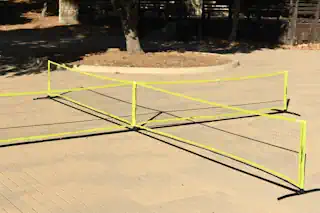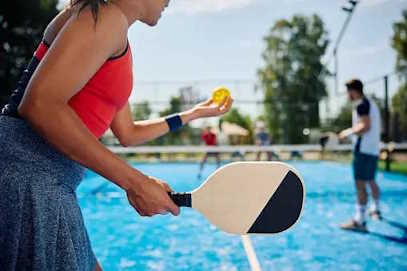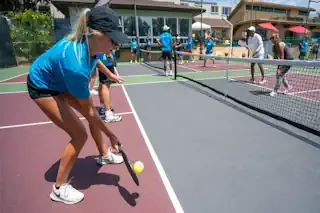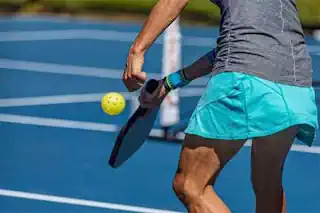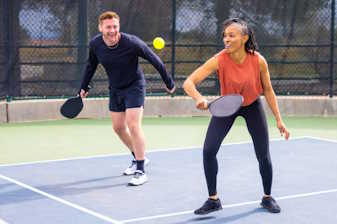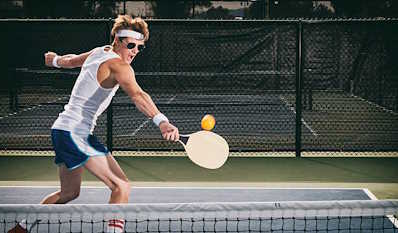Pickleball Nutrition 101
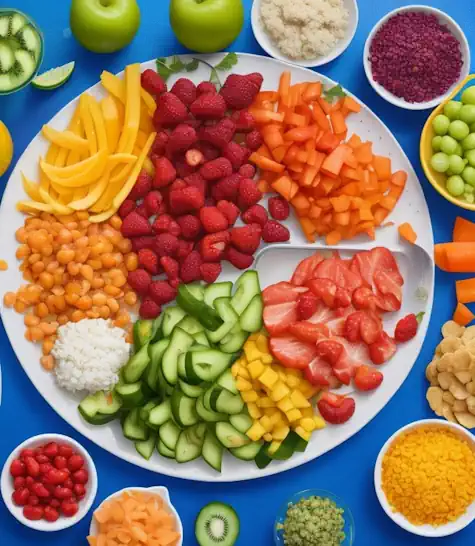
Pickleball Nutrition 101
Pickleball is a relatively new, high-energy sport that is taking the nation by storm. It is enjoyed by people of all ages and at all skill levels; from those who have just bought their first paddle, to professional athletes who train hard to win prize money. Regardless of where you fall in the spectrum of pickleball players, the nutrients you consume will affect your pickleball performance and recovery as with any other sport.
This article on pickleball nutrition tips will help you understand how to fuel your body to perform at your highest, stay properly hydrated, and maintain the energy levels needed to enjoy this great game for many years to come. However, you may need to adjust your current eating habits to prepare for the unique demands pickleball places on your body.
Essential Macronutrients for Pickleball
Carbohydrates
Carbohydrates are your body’s primary source of energy, especially during high-intensity activities like pickleball. They break down into glucose, fueling your muscles and brain. Incorporate complex carbs like whole grains, fruits, and vegetables into your diet for sustained energy. Simple carbs like fruits can be quickly digested and are great for a quick energy boost during breaks.
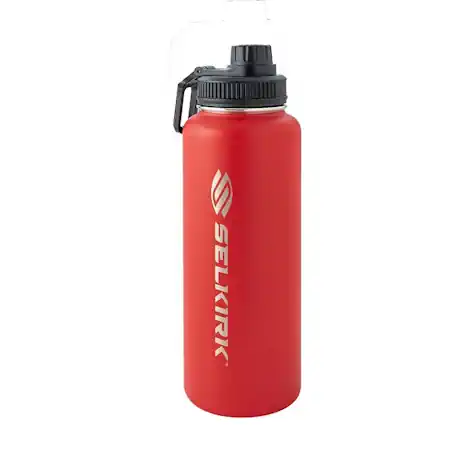
Top 5 Carbohydrate Foods for Quick Energy and Sustained Energy
- Bananas: These are perfect for a quick energy boost. They’re easy to digest and packed with potassium, which helps in preventing muscle cramps.
- Oatmeal: A fantastic source of complex carbohydrates, oatmeal offers sustained energy. It’s slow to digest, keeping your blood sugar levels steady.
- Brown Rice: This whole grain is rich in fiber and provides a steady release of energy over time, making it ideal for longer games or training sessions.
- Sweet Potatoes: Loaded with fiber and vitamins, sweet potatoes are a great source of complex carbs and will help maintain your energy levels throughout the day.
- Greek Yogurt with Fruit: Combining the fast-digesting sugars from fruit with the proteins in Greek yogurt creates a balanced snack that offers both immediate and sustained energy.
Proteins
Proteins are essential for muscle repair and growth. After an intense game, your muscles need protein to recover and get stronger. Include lean proteins like chicken, fish, beans, and legumes in your meals. For vegetarians, options like tofu, tempeh, and quinoa are excellent sources of protein.
Top 10 Sources of Protein for Muscle Repair and Growth After a Pickleball Game
- Chicken Breast: Lean and high in protein, chicken breast is perfect for repairing muscles and promoting growth. It’s also low in fat, making it a clean source of protein.
- Salmon: Rich in omega-3 fatty acids and high-quality protein, salmon not only helps in muscle repair but also reduces inflammation, aiding in quicker recovery.
- Eggs: Versatile and packed with high-quality protein, eggs contain all nine essential amino acids necessary for muscle recovery and synthesis.
- Greek Yogurt: High in protein and probiotics, Greek yogurt aids in muscle repair while also promoting gut health. Pair it with fruits for added nutrients.
- Lentils: Excellent for vegetarians, lentils are a powerhouse of protein and fiber. They help in muscle recovery and provide long-lasting energy.
- Tofu: A great option for vegetarians and vegans, tofu is rich in protein and essential amino acids. It’s versatile and can be added to various dishes to help with muscle repair and growth.
- Quinoa: This grain-like seed is packed with protein and is a complete protein source, meaning it contains all nine essential amino acids. It’s also high in fiber and easy to incorporate into salads, soups, and more.
- Almonds: These nuts are not only a good source of protein but also provide healthy fats, which are essential for overall wellness. A handful of almonds makes for a great post-game snack.
- Cottage Cheese: High in casein, a slow-digesting protein, cottage cheese is excellent for prolonged muscle recovery. Have it before bed to support muscle repair overnight.
- Edamame: Young soybeans, known as edamame, are rich in protein and fiber. They make a convenient and nutrient-dense snack that supports muscle recovery and provides sustained energy.
Fats
Healthy fats are crucial for long-term energy and overall health. They help absorb vitamins and protect your organs. Foods like avocados, nuts, seeds, and olive oil are excellent sources of good fats. However, moderation is key—too much fat can slow you down during a match.
Top 5 Healthy Fats for Long-Term Energy
- Avocados: Packed with monounsaturated fats, avocados provide a long-lasting energy source and also help in the absorption of fat-soluble vitamins. They are versatile and can be added to salads, sandwiches, or enjoyed on their own.
- Chia Seeds: These tiny seeds are rich in omega-3 fatty acids, fiber, and protein. They offer a slow release of energy and can easily be added to smoothies, yogurts, and oatmeal.
- Olive Oil: Known for its heart-healthy properties, olive oil is high in monounsaturated fats. It’s great for drizzling over salads or using as a cooking oil, providing sustained energy and aiding in nutrient absorption.
- Almonds: Besides being an excellent source of protein, almonds also provide healthy fats that help maintain energy levels. A small handful makes for a convenient and nutritious snack.
- Flaxseeds: These seeds are another fantastic source of omega-3 fatty acids and fiber. They can be ground and added to your daily meals such as cereals, smoothies, or baking recipes, contributing to long-term energy stability.
Hydration for Pickleball
Staying hydrated is vital for peak performance and preventing fatigue. Dehydration can lead to cramps, decreased coordination, and reduced energy levels. Aim to drink water throughout the day, not just during your matches. For longer play sessions, consider sports drinks that replenish electrolytes. A handy tip: weigh yourself before and after play to gauge how much fluid you’ve lost and need to replenish.
Best Sources for Staying Hydrated
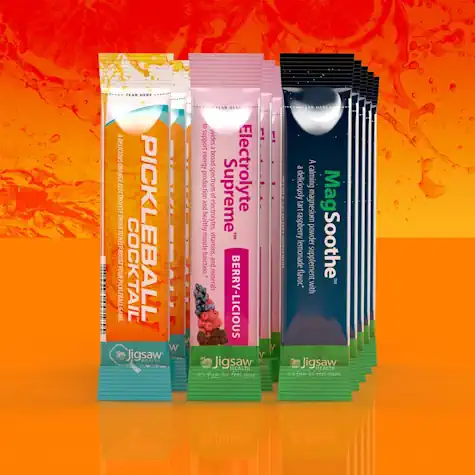
- Water: The most straightforward and essential source of hydration. Always have a bottle of water with you and take small sips throughout the day to maintain fluid levels.
- Coconut Water: Rich in potassium and electrolytes, coconut water is an excellent natural alternative to sports drinks. It helps replenish lost minerals and keeps you hydrated.
- Sports Drinks: These are designed to replace electrolytes lost during intense activities. Opt for low-sugar versions to avoid unnecessary calories.
- Herbal Teas: Caffeine-free herbal teas can be a tasty and hydrating option. They come in various flavours and can serve as a comforting warm or refreshing iced drink.
- Oral Rehydration Solutions: These specially formulated drinks are highly effective at replacing fluids and electrolytes quickly, making them ideal for intense or prolonged physical activities.
- Melons: Fruits like watermelon and cantaloupe have high water content and electrolytes. They’re a refreshing and hydrating snack, especially in warmer weather.
- Cucumber-Infused Water: Adding cucumber slices to your water can enhance its flavor and provide extra nutrients like vitamin K.
- Electrolyte Tablets: These can be dissolved in water to create a replenishing beverage. They’re convenient to carry and ensure you get a balanced mix of minerals.
- Vegetable Juices: Fresh vegetable juices are hydrating and packed with vitamins and minerals. Opt for low-sodium options to avoid excessive salt intake.
- Milk: Both regular and chocolate milk offer hydration and essential nutrients like calcium and vitamin D. They’re also a good protein source, aiding in recovery.
Top Protein-Boosting Drinks
While solid foods are crucial for nutrition, protein drinks can offer a convenient and efficient way to meet your dietary needs, especially for muscle repair and recovery after a game of pickleball. Here are some top choices:
- Whey Protein Shake: Whey protein is a complete protein source and is quickly absorbed by the body, making it ideal for post-game recovery. You can mix it with water or milk and add fruits for extra flavor and nutrients.
- Plant-Based Protein Shake: For those who prefer a vegetarian or vegan option, plant-based protein powders made from peas, rice, or hemp are excellent choices. They provide all essential amino acids and can be blended with almond milk or coconut water.
- Chocolate Milk: Often touted as the ideal recovery drink, chocolate milk offers a perfect balance of carbs and proteins. It’s not only effective but also delicious.
- Protein Smoothies: Combine a scoop of your favorite protein powder with fruits, vegetables, and a liquid base like milk or juice. These smoothies are versatile and can be tailored to meet your specific nutrient needs.
- Greek Yogurt Smoothie: Blend Greek yogurt with fruits and a bit of honey. It’s creamy, rich in protein, and packed with probiotics for gut health.
- Ready-to-Drink Protein Shakes: These are great for convenience. Available in various flavors and compositions, they offer a quick and easy protein boost on the go.
- Collagen Protein Drinks: Collagen peptides not only support muscle repair but also joint health. Mix collagen powder with your favorite beverage or try ready-made collagen drinks.
By incorporating these protein drinks into your diet, you’ll be ensuring that your body gets the necessary nutrients for optimal performance and recovery.
Pre-Game Meals and Snacks
What you eat before a match can set the tone for your performance. Aim to eat a balanced meal 2-3 hours before playing. Focus on complex carbs, moderate protein, and low fat. Here are some pre-game meal ideas:
- Oatmeal with berries and a sprinkle of nuts
- A whole-grain turkey sandwich with a side of fruit
- Quinoa salad with mixed vegetables and a light vinaigrette
For those short on time, a quick snack 30-60 minutes before playing can provide a last-minute energy boost:
- A banana with a smear of peanut butter
- Greek yogurt with a handful of granola
- A small smoothie made with spinach, fruit, and protein powder
Post-Game Recovery
Recovery nutrition is essential to restore energy levels, repair muscle damage, promote muscle recovery and reduce soreness. A combination of protein and carbs within 30-60 minutes post-match can accelerate recovery. Some great post-game recovery options include:
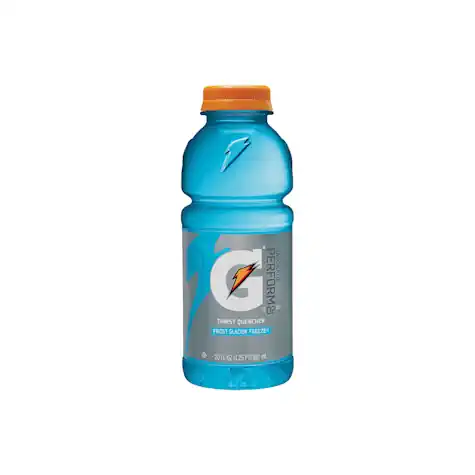
- Grilled chicken with sweet potato and steamed broccoli
- A protein shake with a scoop of protein powder, a banana, and some almond milk
- Whole-grain toast with avocado and a poached egg
Hydration continues to be crucial post-game. Drink water or a sports drink, and consider incorporating anti-inflammatory foods like berries, leafy greens, and fatty fish to help with muscle soreness.
Special Considerations for Competitive Pickleball Nutrition
Every player is unique, and nutrition needs can vary based on age, fitness level, and intensity of play. Younger athletes might require more calories and protein due to their growing bodies, while older players should focus their nutritional intake on maintaining muscle mass and bone health with adequate protein and calcium intake. casual players should focus on a balanced diet that supports general health and wellness.
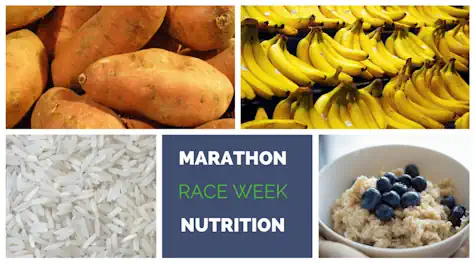
Competitive players may need to fine-tune their diet to optimize energy levels, sustain energy levels, performance and recovery while starting days in advance on their hydration. I run long-distance events and success lies in the nutrition and hydration that starts two weeks before the event. Playing pickleball under the heat of a summer sun for hours at a time is no different. For peak performance nutrition needs to start way before the event. Consuming carbohydrates, lean proteins, and healthy snacks a week or more before the pickleball match is an excellent nutritional strategy.
Sample Pickleball Nutrition Plans
Day-of-Play Meal Plan
- Breakfast: Oatmeal with chia seeds, blueberries, and a drizzle of honey
- Mid-Morning Snack: An apple with almond butter
- Lunch: Grilled chicken wrap with mixed greens, tomatoes, and a light dressing
- Pre-Game Snack: A small smoothie made with spinach, banana, and whey protein
- Post-Game Meal: Salmon with quinoa and asparagus
- Evening Snack: Greek yogurt with a handful of nuts
Recovery Day Meal Plan
- Breakfast: Scrambled eggs with spinach and whole-grain toast
- Mid-Morning Snack: A handful of mixed nuts and a piece of fruit
- Lunch: Quinoa salad with black beans, corn, avocado, and a lime vinaigrette
- Afternoon Snack: Carrot sticks with hummus
- Dinner: Stir-fry with tofu, colorful veggies, and brown rice
- Evening Snack: Cottage cheese with pineapple chunks
Conclusion
Proper nutrition is a game-changer in pickleball, enhancing your performance, endurance, and recovery. By focusing on balanced macronutrients, staying hydrated, and tailoring your diet to your specific needs, you can elevate your game and enjoy long-term health benefits. Understanding your body composition and maintaining a consistent training intensity will help you be prepared.
Remember, what you eat today fuels your game tomorrow. So, invest in your customized nutrition plan, take care of your body, and most importantly, enjoy every moment on the court.
Frequently Asked Questions (FAQ)
What should I eat on the morning of a pickleball game?
A balanced breakfast that combines complex carbohydrates, protein, and a bit of healthy fat is ideal. Examples include oatmeal with berries and nuts, a whole-grain turkey sandwich, or scrambled eggs with spinach on whole-grain toast.
How soon before a game should I eat to maintain my energy levels?
It’s advisable to have a balanced meal 2-3 hours before playing. If you’re pressed for time, a small snack 30-60 minutes prior can provide a quick energy boost. Eating to much just before a match can often result in a bathroom need/issue during gameplay. Not the worst thing to happen but it can certainly change the momentum of your game.
How important is hydration in pickleball?
Staying hydrated is crucial for maintaining peak performance and preventing cramps mild dehydration or fatigue. Start hydrating well before your match and continue to drink water or a sports drink during and after the game.
Can I drink coffee before a game?
Moderate coffee consumption can provide a helpful caffeine boost for energy and focus. However, be mindful of how your body reacts to caffeine and avoid excessive consumption which can lead to jitters or even mild dehydration afterwards.
Are supplements necessary for pickleball?
Supplements are not essential if you have a well-balanced diet, but they can be beneficial in certain circumstances, such as protein shakes for post-game recovery or electrolyte tablets for hydration. Always consult with a healthcare provider before starting any new supplements.
What are the best foods for quick recovery post-game?
A combination of protein and carbs within 30-60 minutes post-match is best for recovery. Examples include a protein shake, grilled chicken with sweet potato, or whole-grain toast with avocado and a poached egg. These foods help support muscle function and recovery and help to replenish energy stores.
How should I adjust my diet if I’m playing in a tournament?
For tournament play, start hydrating and fueling your body well in advance. Focus on balanced meals, stay hydrated throughout, and consider small, light snacks between matches to maintain energy levels.
Is there a difference in dietary needs for competitive vs. casual players?
Yes, competitive players may require more fine-tuned pre game nutrition to optimize performance and recovery. Casual players should maintain a balanced diet that supports general health enhancing performance and wellness.
How can older players maintain muscle mass and bone health?
Older players should focus on the right foods for adequate protein intake, calcium, and vitamin D to support muscle mass and bone health. Foods like lean meats, dairy products, leafy greens, and fortified foods are excellent choices. Proper nutrition is more important for senior players as we are less able to stress our bodies like when we were younger.
What are some good vegetarian or vegan protein options?
Plant-based protein options like peas, rice, hemp, quinoa, and beans offer all essential amino acids. Consider meals like quinoa salad, tofu stir-fry, or protein shakes made with plant-based powders. Understanding pickleball nutrition and adjusting for your dietary needs can be complex but it is worth the effort.
